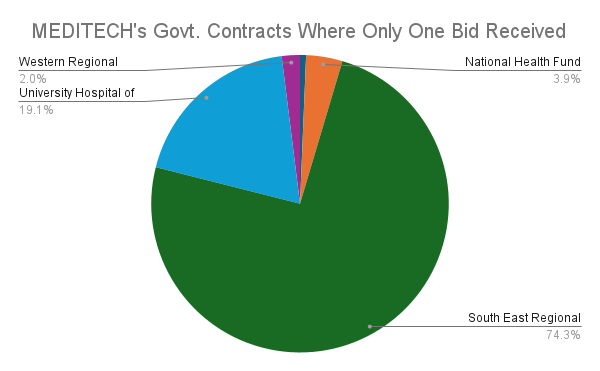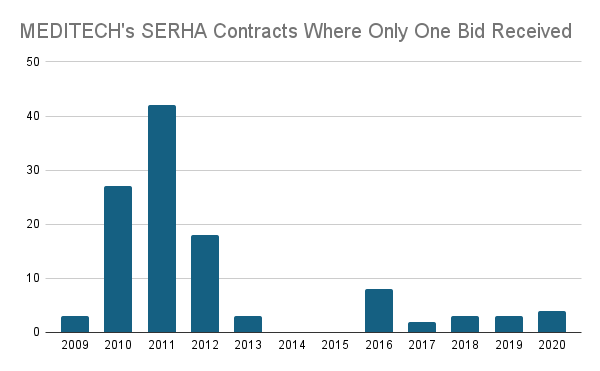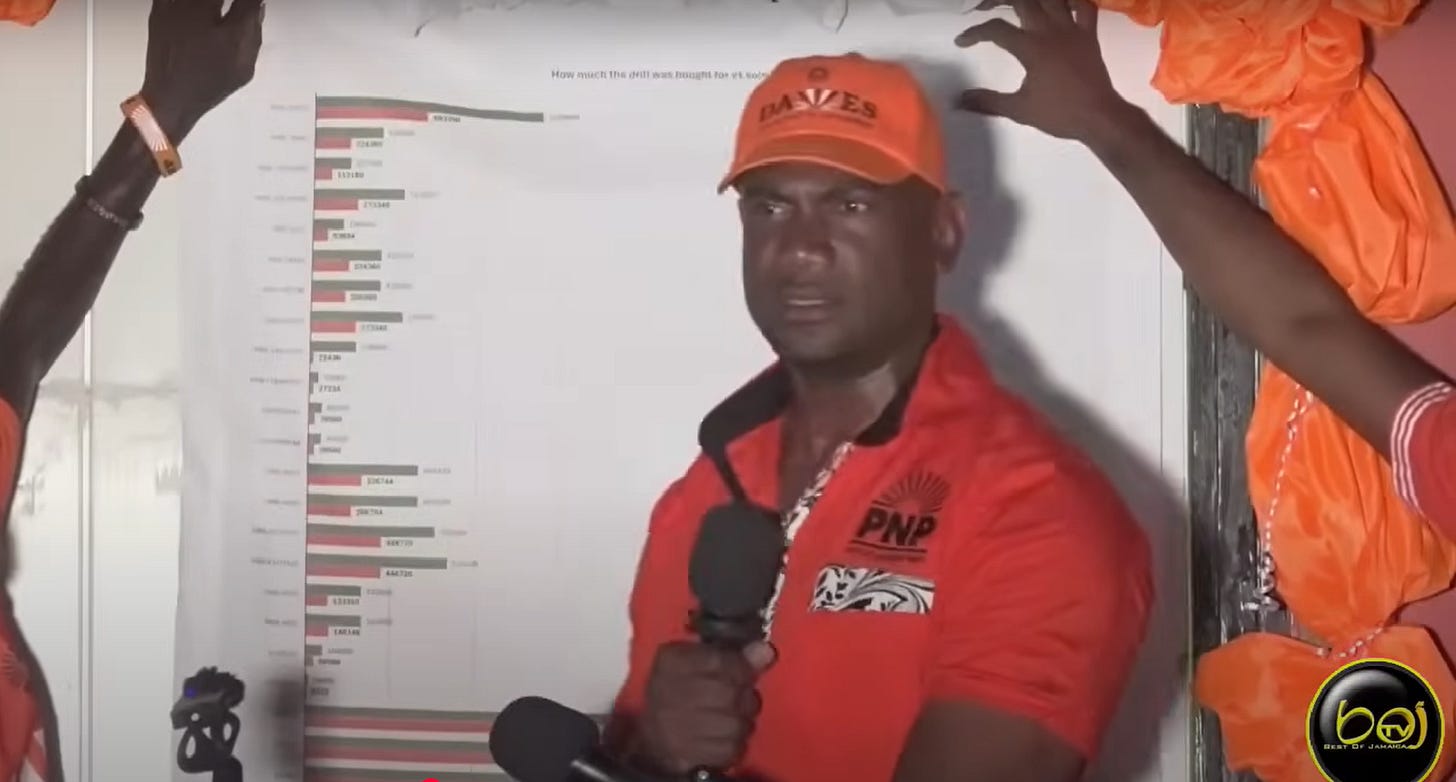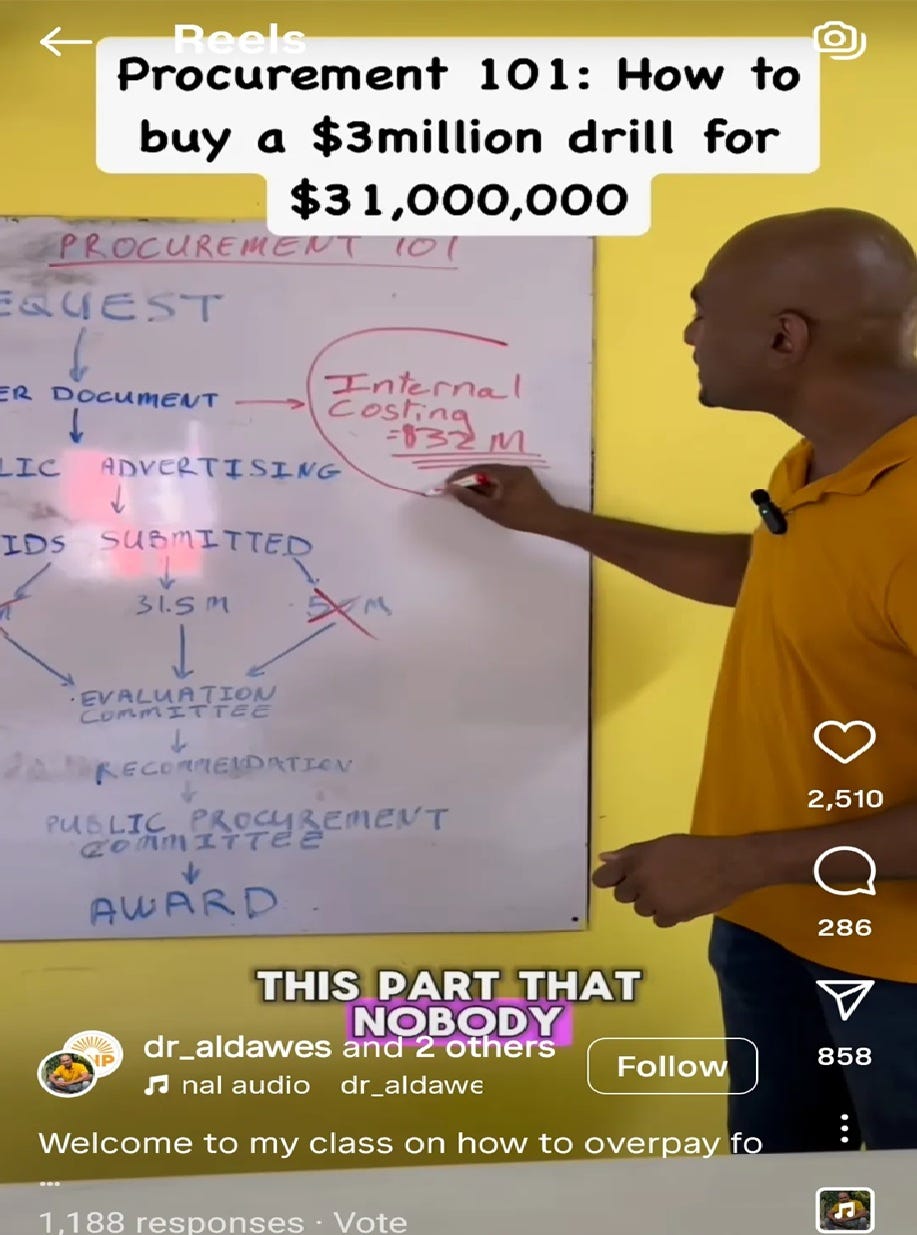Scrutiny Over J$31.5M Neurosurgical Drill Deal Deepens As SERHA Procurement History With MEDITECH Raises A 'Red Flag'
SUBSCRIBER CONTENT
Medical Technologies (MEDITECH) Limited, the company suing Opposition Spokesperson on Health Dr. Alfred Dawes for accusing it of overcharging the government for a $31.5 million (US$200,151) neurosurgical drill last year, got 223 government contracts worth $201 million (US$1.85 million) between 2008 and 2020 — two-thirds of which received only one tender.
The database of Quarterly Contract Awards (QCA) shows that there were 152 such contracts worth $158.6 million (US$1.46 million) during that time period from five government entities with almost three-quarters of those awarded by the South East Regional Health Authority (SERHA) — the public body that bought the $31.5 million drill.

In the case of the neurosurgical drill, the contract was awarded to MEDITECH by SERHA after an evaluation of three bids. However, the dearth of competition the company has faced in other areas raises a question about whether SERHA has been ensuring that taxpayers are getting a fair price.
Many of those contracts awarded by SERHA were small contracts to provide medical devices to individuals and were awarded mostly between 2010 and 2012, though the pattern continued into 2020, albeit at a lower frequency. Of note, no such contracts were recorded in 2008, 2014 and 2015. There are no contracts listed in the database after the third quarter of 2020 because the Integrity Commission, citing a piece of its legislation, says it’s barred from making further updates to the database public.

For the relevant years between 2009 and 2020, when the references in the database to MEDITECH’s SERHA contracts begin and end, SERHA awarded the company 113 such contracts worth $72.5 million (US$667,174), making the average contract size around $642,000 (US$5,904).
The threshold at which competitive tendering is required - unless there are unique circumstances or in cases of emergency - used to be up to $500,000 (US$4,598) for goods and services until October 1, 2016, when the threshold moved to $1.5 million (US$13,794).
According to the database, seven of the 113 contracts were direct contracting and two of those seven were above the threshold at which competitive bidding would have been required.
All the other 106 were limited tender or restricted bidding, meaning SERHA requested between 2 and 5 bids in each case but received only one in return.
When asked why only one tender was received in so many of the cases even after requesting multiple bids, SERHA’s chairman, Wentworth Charles, told 18⁰ North, “SERHA put out many tender, and no one responded from time to time.” He then suggested seeking greater clarity from SERHA’s personnel.
The public procurement rules state that competitive tendering is the government’s “preferred method” of procuring goods, services and works. However, in a situation where multiple bids were requested and only one received, the public procurement office within the Ministry of Finance and the Public Service told 18⁰ North, a public entity can proceed with that sole bidder especially when time is short and the price is within the expected range, though it would still recommend that the entity review its processes to find out why the other suppliers didn’t bid.
Jeanette Calder of Jamaica Accountability Meter Portal, JAMP, describes the frequency of there being only one bidder after multiple requests as “highly unusual” and a “red flag.”
While not grounds to accuse the entity of corruption, Calder said the pattern “should warrant a closer look by those tasked to investigate procurement concerns” since this type of tendering, where invitations are sent directly to selected suppliers rather than advertised publicly, creates a higher risk for “favoritism” or “for suppliers to collude.”
The $31.5 Million Drill: Core of the Controversy
In the case of the $31.5 million drill, there were three bids ranging from a low of $12 million (US$76,326) — which SERHA says didn’t meet the tender requirements — to a high of more than $50 million (US$318,026). Dawes said the successful bid from MEDITECH was in the middle at $31.5 million, just below the internal cost SERHA had forecast of $32 million (US$203,536).
Dawes believes SERHA overpaid and said initially and incorrectly in a press conference he called on May 20 that “the same drill,” the EM 200 model, an older version, should have cost $3 million (US$19,082) or less. He also questioned whether one of two refurbished drills brought in last year by the company for less than $300,000 (US$1,908) each was what SERHA ended up buying for $31.5 million.
However, in the defamation suit the company filed against Dawes for implying that the company was involved in “corrupt practices” and the “figurative ‘rape’ of Jamaican taxpayers,” MEDITECH presented documentation to show that the drill delivered to SERHA was a more advanced EM 800 model. It had also said previously in a separate statement that the item was new.
The invoice included over 150 attachments and accessories totaling $27.3 million (US$173,437) along with a two-year maintenance package costing an additional $4.2 million (US$26,714) for the total sum of $31.5 million.
Markups
Inclusive of freight for most items, MEDITECH paid $12.8 million (US$81,696) for the drill and accessories from U.S.-based manufacturer Medtronic, and since the items were brought in under the Ministry of Health’s name, there were minimal customs fees and no import duties, invoices and customs documents obtained by Dawes’ party and reviewed by 18⁰ North show.
This means, assuming no other fees, the company applied a markup of approximately 112% when it billed SERHA the $27.3 million; or around 145% if the $4.2 million maintenance package is included. This is significantly lower than the 949% markup implied by Dawes when he said the $31.5 million drill would have cost the company around $3 million.
Issues of Conflicts of Interest
Adding to the controversy, Kingston Central MP and attorney Donovan Williams is listed as owning 40,000 of the company’s 50,000 issued shares, which Dawes at the May 20 press conference said was “further evidence of what looks bad.”
But Williams claims he merely holds the shares in trust and is arranging their transfer to an unnamed rightful owner. “I'm not entitled to nor have I shared in the profits of this company,” he said, and added that Dawes’ suggestion that he derived benefit from the purchase of the drill is “false.” He has joined the company’s defamation suit against Dawes for implying he was part of a “web of corruption” paid for “in the suffering and death of children and babies.”
Dawes Doubles Down
Despite the lawsuit, Dawes doubled down on his position at the May 30th opening of his constituency office in South East St. Catherine, where he is the opposition’s candidate for the upcoming general election.
Dawes said after checking with various distributors as to the cost of each item for the drill, SERHA buying the items piecemeal drove up costs unnecessarily. He said the distributors asked, “Why you want to buy them individually when they come as a set?”

He also repeated - without evidence - a suggestion he had made previously on social media that despite claims by SERHA that the procurement process was followed, the way the entity arrived at the internal cost of $32 million was “compromised” because no one has given him a satisfactory explanation of how they came up with that costing. (He had told 18⁰ North that SERHA had said it had checked with doctors to come up with that cost.)
He bellowed from the political platform, “SERHA said it would cost $32 million, and the bill reach $31.5 million. It nuh look good. It nuh sound good. It nuh smell good.”

When contacted, MEDITECH declined to comment on what it paid for the equipment, citing ongoing litigation. SERHA’s chairman, Charles, didn’t respond to a question sent June 3 about how the entity came up with the internal costing of $32 million. SERHA’s personnel has also refused to respond to queries about the drill or the broader procurement pattern revealed in the Integrity Commission’s Quarterly Contract Awards (QCA) database regarding the frequency of multiple requests it makes for tenders while receiving only one bid in return.
####
Editor’s Notes:
This version of the script corrects the start date of when MEDITECH began receiving government contracts in the Integrity commission’s QCA database to reflect 2008. It had previously said 2009, which was an error. 2009 was when MEDITECH began receiving SERHA contracts and the distinction has also been made in this version of the script.
Though all the JMD values remain the same since the methodology was done correctly (just that the start date was reported incorrectly), the exchange rate used had to be adjusted as well to include 2008 so some US values differ slightly.
All references to the drill purchased last year remain at J$157.22:US$1, the average sell rate on the Bank of Jamaica website for 2024, but for all the other references and contracts between 2008 and 2020, the exchange rate used was adjusted to J$108.74:US$1, the average of the average sell rates for those years.
Related Stories:
Who Owns MEDITECH? MP's Trustee Role Tests Jamaica's Ownership Disclosure Law

